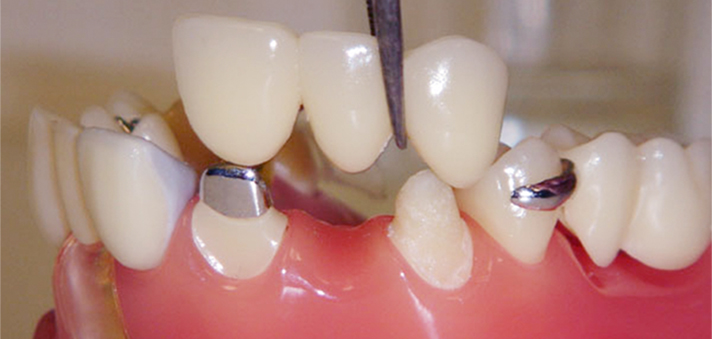A gap in your smile can lead to a variety of health issues and personal stress. If you’re missing a tooth and looking to restore your smile, consider the benefits of receiving dental bridges from a Little Rock dentist.
Having missing, broken, or damaged teeth can cause changes in chewing and speaking as well as alter your facial structure and self-esteem. This can also lead to long term health consequences, such as the weakening of or damage to the alveolar bone, which contains the tooth sockets that hold your teeth on your jaw. Luckily, dental restoration options such as dental bridges can correct these problems and prevent future issues from developing. Understanding the benefits of dental bridges from a Little Rock dentist can prepare you to make the best decision for your smile.
What Are the Health Consequences of Missing Teeth?
A dental bridge provides a number of benefits by eliminating the psychological, aesthetic, and health consequences associated with the loss of teeth. As a result of missing teeth, you may experience problems chewing or speaking, uncomfortable shifting of other teeth, changes to your facial shape, and several other orthodontic issues that can seriously affect your smile.
The primary purpose of a dental bridge is to permanently restore multiple missing teeth. As its name suggests, it serves as a bridge between two sets of teeth for the purpose of filling the gap created by any missing teeth. A dental bridge is constructed by creating a set of prosthetic teeth that is usually composed of porcelain or ceramics. These teeth are then connected to a natural tooth, crown, or dental implant on either side of the gap to effectively fill the space left by a missing tooth.
What Type of Bridge Is Best for Me?
Bridges come in different forms, and your dentist’s recommendation will depend on the severity of your gap as well as the health and strength of the surrounding teeth and gums. The two types of bridges are:
- Traditional fixed bridges serve as a permanent replacement for missing teeth and can only be removed by a medical professional.
- Maryland bonded bridges are fixed bridges, except they are have an underlying metal structure that is fused to the back of existing teeth on either side of a gap using metal or porcelain “wings.”
How Long Do Dental Bridges Last?
Caring for your dental bridge and its neighboring teeth is essential for the long term effectiveness of this restorative procedure. Oral hygiene practices, like brushing twice a day, should be followed and a strong emphasis should be placed on flossing. The average dental bridge may last five to seven years; however, with proper care and cleaning, it is not unusual for a bridge to last 10 years or more.
Dental bridges are a safe and effective restorative procedure that continue to help patients regain confidence in their health and appearance. If you have a gap or a missing tooth, learn more about receiving dental bridges from a Little Rock dentist by scheduling a consultation with Arkansas Family Dental or call us at 501.683.8886 to learn how we can restore your smile today.

